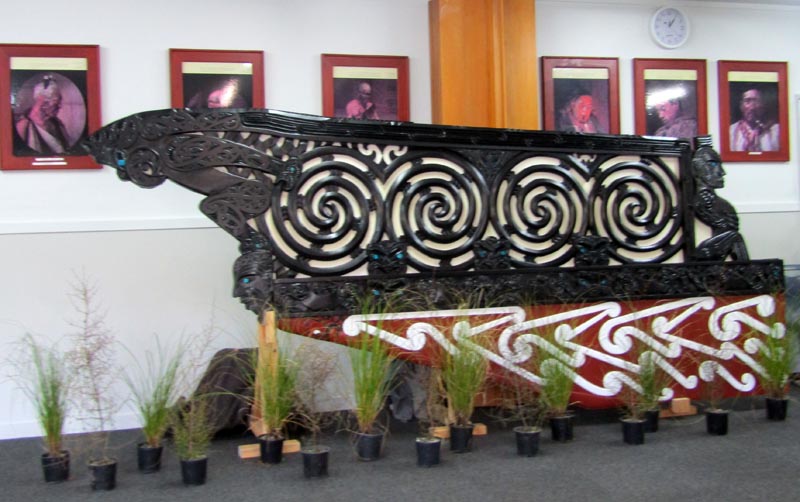
He Pitau Whakarei was gifted to the Department of Corrections for its refurbished Mayfair House in 2021. It was carved by the men in Tongariro Prison, led by master carver Kemara Kennedy
The vision of a small company based on the southern shores of Lake Taupō – “to empower people to pursue their potential and achieve success” – has driven its educational, tikanga-based programmes over 12 years in Tongariro Prison and the region’s Community Corrections sites.
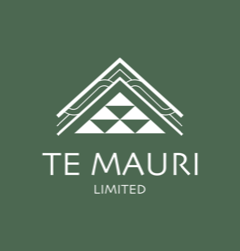 These programmes aim to address the men’s offences, and support their healing and rehabilitation, says Anna Paki, Te Mauri Ltd’s Operational Manager.
These programmes aim to address the men’s offences, and support their healing and rehabilitation, says Anna Paki, Te Mauri Ltd’s Operational Manager.
Knowing the impact that toi Māori – whakairo, waiata, taonga pūoro, raranga – can have on transforming lives, the organisation leapt at the opportunity to apply for funding to the Creative Arts and Cultural Wellbeing Prison Initiative, a partnership between Ara Poutama Aotearoa and Manatū Taonga.
“We’ve been wanting to run whakairo and music programmes for years because we know how important the arts are in enabling tāne to heal and express themselves emotionally and creatively,” Anna says.
“Toi Māori is not only therapeutic but for Māori, it was – and still is – a way we express our emotions and frustrations.”
Funding for two programmes
Te Mauri Ltd received funding for two programmes, to run in Tongariro Prison from 2023 to 2025.
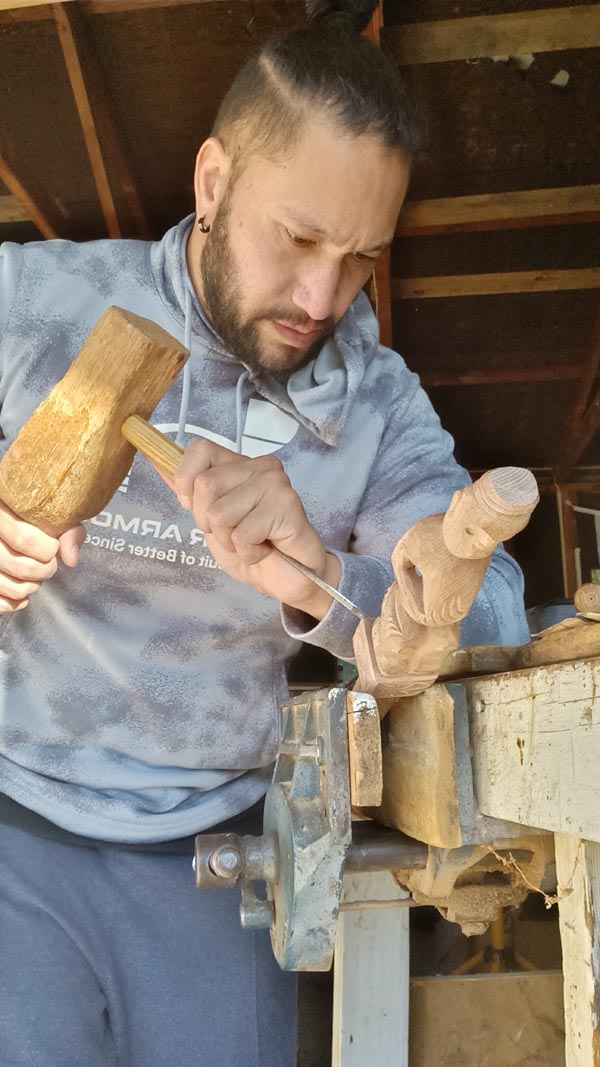 Each programme will provide two ten-week blocks per year. They are:
Each programme will provide two ten-week blocks per year. They are:
- Te Huanui Whakairo Programme (The Pathway of Carving), which started in April 2023 under the guidance of kaiako and master carver Kemara Kennedy (Te Arawa)
- Te Oro Whanake (Growth though Music), which started in August 2023 under the guidance of two kaiako.
Cynthia Ellis, Corrections’ Learning and Interventions Delivery Manager Kai Hāpai, says it takes a lot of commitment and diligence to study the art of whakairo.
“There are no shortcuts in this programme, and the delivery is intense and very spiritual,” she says. “The first few weeks are about preparing the men to become respectable and responsible carvers, and this means having to purge their minds and souls of unsavoury or unhealthy elements.
“The men must be prepared to learn everything about the origins of carving – from the cosmological stories to the tikanga and rituals about this ancient artform.
“We are privileged to have a kaiako of such high calibre. Kemara is passionate about supporting the men and delivering the programme in accordance to tikanga tuku iho (ancient customs).
“The men are getting quality lessons and not only are they learning to carve but they’re becoming better humans.”
At the end of each ten-week block, there’s a graduation ceremony for the tāne where they can showcase their carving.
"Creating positive narratives for themselves"
Kemara says it was “imperative” the programme was based in tikanga and kawa. “The benefits of this approach are reflected in the way the men behave and conduct themselves as carvers. They have developed an in-depth appreciation for the artform, creating positive narratives for themselves and ultimately rediscovering their voices through whakairo.
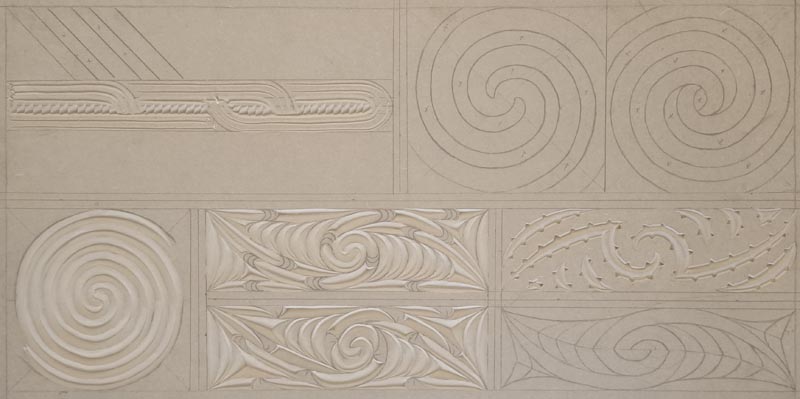 “The most common breakthrough I’ve observed is the desire to explore how these geometric systems of patterns, designs, shape and symmetry can apply holistically to themselves – inspiring the men to find their place within te ao Māori.”
“The most common breakthrough I’ve observed is the desire to explore how these geometric systems of patterns, designs, shape and symmetry can apply holistically to themselves – inspiring the men to find their place within te ao Māori.”
In Te Oro Whanake (Growth though Music) programme, participants learn to play a musical instrument, encouraging them to work collectively and compose a piece of music or a song. This will be performed and recorded at the end of each block.
Participants also learn about the art and history of music from a te ao Māori perspective, preparing them to undertake NCEA level two music if they choose to do this.
Embracing the musical literacy lessons
“It’s amazing to hear about the positive interactions between our long-serving offenders and the two young tutors,” Cynthia says. “Most of the men have played instruments but have never been taught to read music. They’ve embraced the musical literacy lessons.
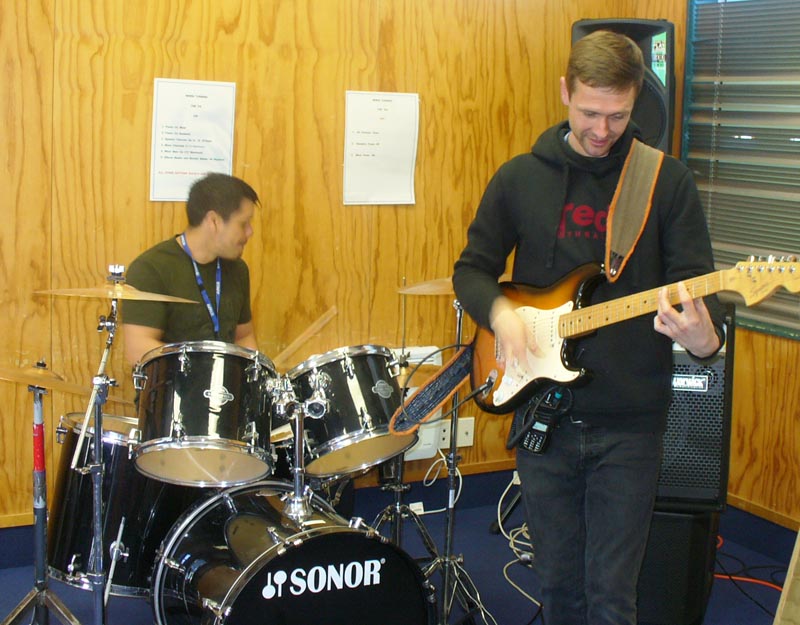 “Music is food for the soul; it’s therapeutic and a means of catharsis for our men. The euphoria of their music permeates their social behaviour and according to Unit staff, the men are more respectful, more positive and generally more pleasant.”
“Music is food for the soul; it’s therapeutic and a means of catharsis for our men. The euphoria of their music permeates their social behaviour and according to Unit staff, the men are more respectful, more positive and generally more pleasant.”
Outcomes expected at the end of each block include enhanced mana and cultural identity; increased memory retention, self-expression and communication; increased mental health and wellbeing; improved teamwork, patience and perseverance.
A feature of the Creative Arts and Cultural Welling Prison Initiative is the ongoing evaluation of each of the programmes. The research companies, Point and Associates Ltd and Awa Associates, are working with Te Mauri’s Director, Te Atirau Paki, to evaluate the impact of the two programmes over the three years.
"Kia whanake, kia hua, kia ora. To grow, to bloom, to thrive. This statement encompasses a big element of what we are trying to achieve with the men,” Te Atirau says. “These artforms provide so many conduits to growth. Growth through learning, growth through expression, growth through connection.
“We hope these programmes will teach the men how to connect: to their gifts, to their heritage, to their culture, to their ability, to their potential and to their wairua.”


